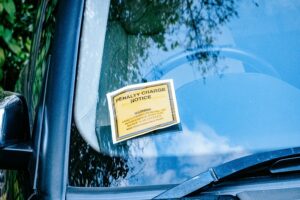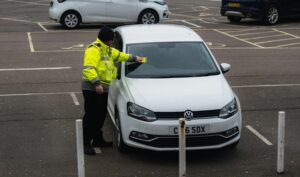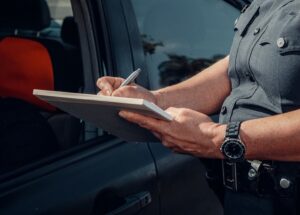Can you drive after smoking cannabis?

As cannabis laws evolve, more drivers face a perplexing legal quandary. Caught between changing social norms and strict road safety laws, many find themselves confronting serious charges. What are the facts? How are police enforcing these laws? And what defences exist? This article delves into the complex world of cannabis-related driving offences, examining current legislation, testing methods, and legal strategies. With life-altering consequences at stake, expert legal guidance is crucial.

Key Takeaway: Can you be prosecuted for drug driving in the UK?
Read on to discover the critical information that could save your licence – and your future.
Is cannabis legal in the UK?
Cannabis remains a Class B controlled substance in the UK, making its possession, cultivation, and distribution illegal. However, the legal landscape is complex:
- Possession: Up to 5 years in prison, an unlimited fine, or both.
- Supply and production: Up to 14 years in prison, an unlimited fine, or both.
- CBD products: Legal if they contain less than 0.2% THC and are sold as a food supplement.
- Medicinal use: Legal since 2018, but strictly regulated and prescribed only for specific conditions.
Driving under the influence of cannabis
Driving under the influence of drugs isn’t solely about visible impairment. In the UK, it’s illegal to drive with certain levels of drugs in your system, regardless of whether you feel affected. This includes cannabis.
The rules are uncompromising:
- Zero-tolerance approach for illegal drugs.
- Strict limits for prescription medications.
But here’s where it gets complicated. The legal limit for cannabis is just 2 micrograms of THC per litre of blood. That’s incredibly low, applying to both illegal and medicinal cannabis use.
Testing for cannabis and driving: The roadside reality
Officers now wield devices known as ‘drugalysers’ – small machines that can detect cannabis and cocaine from a saliva sample in minutes. It’s quick, it’s non-invasive, but it’s not without controversy.
If your swab comes back positive, you’re looking at a trip to the station for a blood test. But here’s where it gets interesting: these roadside tests aren’t foolproof.
So, what should you look out for? Experts suggest watching for these potential errors:
- Did the officer follow the correct procedure?
- Was the test read within the specified time frame?
- Were you taking any medication that could interfere with the results?
It’s a complex area, and one that’s keeping lawyers busy. A single procedural error could make all the difference.
Cannabis at the wheel: What’s at stake?
The penalties for driving under the influence of cannabis in the UK are severe, reflecting the government’s hard-line stance on drug driving. But what exactly are drivers risking?
Let’s break it down:
- A minimum 12-month driving ban
- An unlimited fine
- Up to 6 months in prison
- A criminal record
The consequences extend far beyond the courtroom. We’re talking about impacts on employment, insurance costs, even travel restrictions. Indeed, a drug driving conviction stays on your licence for 11 years. That’s over a decade of potential repercussions.
Do you need a lawyer?
When faced with a cannabis-related driving charge, many ask: is a lawyer really necessary? The answer, according to legal experts, is a resounding yes.
Why? Here’s what a solicitor can do:
- Challenge the accuracy of drug tests
- Scrutinise police procedures for potential errors
- Explore ‘special reasons’ arguments to avoid disqualification
- Negotiate with prosecutors for reduced charges
- Present mitigating factors to minimise penalties
- Navigate complex legal and scientific evidence
- Advise on plea options and potential outcomes
These cases often hinge on technical details. A good lawyer can spot issues that could make or break your defence.
FAQs: Cannabis and driving
- Can police drug test you without reason? Police officers in the UK must have ‘reasonable grounds’ to suspect drug use before administering a test. While they can’t conduct random tests, the threshold for ‘reasonable grounds’ is relatively low, giving officers significant discretion based on their observations.
- Must you give a blood sample at the station? You can refuse, but beware. Refusal often leads to charges of ‘failing to provide. The penalties can be just as serious.
- Is passive smoking a defence? Passive smoking is rarely a successful defence in drug driving cases. While theoretically possible, it’s extremely difficult to prove. Scientific evidence suggests that THC levels from passive exposure are typically far below the legal limit for driving. Courts generally view this defence sceptically, making it a challenging argument to substantiate in legal proceedings.
As cannabis laws evolve, the issue of drug driving remains complex and contentious. The law takes a hard line, with severe penalties for those caught over the very low legal limit. With cases rising and testing more widespread, expert legal advice is crucial for those facing charges.
Facing a drug driving charge?
Qredible can connect you with experienced solicitors in your area who specialise in drug driving cases.
KEY TAKEAWAYS:
- The UK maintains a zero-tolerance approach, with even trace amounts of cannabis potentially leading to charges.
- The legal limit is shockingly low at just 2 micrograms of THC per litre of blood.
- Roadside testing has become widespread, with police now equipped with ‘drugalysers’.
- Penalties for drug driving are severe, including driving bans, hefty fines, and potential prison time.
- Medical cannabis users are not exempt, as a prescription doesn’t protect drivers from prosecution.
- The passive smoking defence is rarely successful and hard to prove in court.
- Legal representation is crucial in these cases, which often hinge on complex technical details.
Do you need a solicitor?
Find a solicitor on Qredible in just a few easy steps
















